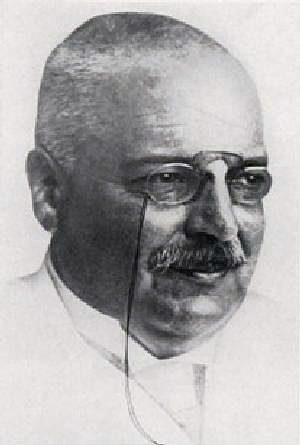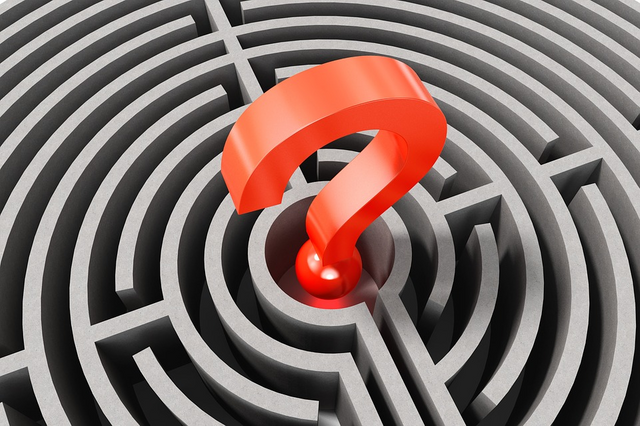Surveying some recent news coverage on the topic of Alzheimer's disease
Summarizing some recent news coverage on the topic of Alzheimer's disease reveals common themes, including the fact that the cause of the disease is widely contested; that researchers are looking to understand the early phase of the disease more closely; and that in the end, individualized concerns may dictate a need for a variety of treatment vectors.
Introduction

pixabay license, source
It comes as a surprise to me that I have so far managed to keep up with daily posts for over a month in my #rsslog series of posts. In the time since I launched the series on March 16, I have posted somewhere around 50 posts in the series. Which means I have linked to, and briefly summarized, more than 500 posts from elsewhere on Steem, and from the Internet at large. It hasn't attracted the interest, votes, or discussion that I might have hoped or expected, but (in my opinion), it is generating some timely and relevant content on the Steem block chain. Of course, I could probably make use of something like @dlike, and increase the rewards by splitting the 10 links per day into multiple posts, but I think that this format is more manageable for the reader, and I find that it is somewhat enjoyable, so I'll continue it as-is for a while longer, and see if it gains any traction.
During the course of the series, one thing I have noticed is that I'm revisiting some of the same topics fairly often. So, I thought that I could make use of these links in order to create a topical post, where I pick a common topic and elaborate on the summaries that I have already posted, and also synthesize the related ideas. This is my first attempt at that sort of endeavor, with a post on the topic of Alzheimer's disease.
First, I'll provide a general introduction to the disease from everipedia, and an edge.org post that I reviewed back in February, then I'll move on to describing the recent news stories that I've shared in my #rsslog series, and finally, I'll see how they all fit together.

What is Alzheimer's disease?

Alois Alzheimer
Public Domain, source
According to everipedia1, Alzheimer's disease (also known as Alzheimer's) is the most common form of dementia. It was first identified in 1901 by the German psychiatrist Alois Alzheimer. Symptoms include loss of memory, problems with language, behavioral issues, mood disorders, and issues with motivation and self-care. They usually start slowly and get progressively worse as time passes.
The cause of the disease is not well understood, but risk factors include a diverse set of genes and also head injuries, high blood pressure, and depression. It is believed to be associated with the occurrence of plaques or tangles in the brain, and is diagnosed through a combination of cognitive testing along with brain scans and blood tests to rule out other causes.
There are no treatments that reverse or halt the progression of the disease, although exercise programs may improve outcomes. Anti-psychotics are often prescribed, but don't seem to help, and increase the risk of premature death.
The disease advances through stages from the early stage, where increasing impairment of memory and learning leads to a diagnosis through the moderate stage, during which the patient loses more and more independence, until the advanced stage, where the patient is completely dependent upon caregivers.
For 1-5% of cases, the cause of the disease is explained by genetics. For the remainder of cases, there are several competing hypotheses.
The cholinergic hypothesis is the oldest one, and proposes that the disease is caused by a reduction in bodily production of the neurotransmitter, acetylcholine. This has fallen out of favor, however, because therapies aimed at boosting acetylcholine have failed.
The amyloid hypothesis arose in 1991, and suggests that Alzheimer's is caused by extracellular amyloid beta deposits. Research since than has led to refinements of the basic hypothesis, but has not yielded any successful treatments.
According to the tau hypothesis, the disease is caused by tangles that form when hyperphosphorylated tau begins to pair with other threads of tau. These tangles are believed to block proper signalling between neurons.
Other theories include poor functioning of the blood/brain barrier, and bio-metal accumulation.
In addition to the cost of Alzheimer's on the patients own health, it also imposes heavy burdens on the patient's family - as caretakers, and on society at large.
According to Lisa Mosconi2, Alzheimer's effects more women than men, which brings us to the Alzheimer’s Prevention Clinic.

The Alzheimer's Prevention Clinic
Lisa Mosconi runs the Alzheimer's Prevention Clinic2, with a focus on Alzheimer's research in women. Mosconi got involved in this research because the disease runs in her own family. She says that the disease kills the brain's neurons over time, and there is no treatment that regrows neurons, so her research focus is on prevention. Until recently, this line of research was viewed with suspicion, but she says that research into prevention is becoming more common.
Her current research program includes a customized prevention program including a series of tests that are repeated every six months, and brain scans that are repeated every 18-24 months. In women, she has found that there is a relationship between menopause and brain activity. In particular, a woman's brain activity level is similar to a man's level before menopause, but drops by up to 50% afterwards. Mosconi believes that understanding and optimizing hormone levels in women is critical to preventing Alzheimer's. Her program also makes individualized dietary recommendations to some patients.

Light and Sound Therapy

pixabay license, source
Scientific American3 reported in March that "Bathing patients in flashing light and pulsing sounds both tuned to a frequency of 40 hertz might reverse key signs of Alzheimer’s in the brain." According to the article, the research was done in mice, and the frequency was chosen in order for it to synchronize with brain wave frequencies.
The researcher observed that in mice who were exposed to the the light and sound, the amount of amyloid plaques and tau tangles was vastly reduced. A neurologist suggests that the audio and visual pulses might be acting as a metronome to control the pace for neurons that tend towards hyperactivity.
The article notes that the research is not ready for human applications, and it might be more than 5 years before anyone knows if it will be helpful for humans.

Diet and Alzheimer's
I could only get to the Abstract, but a publication in IOS Press4 suggests that low meat consumption is linked with Alzheimer's. No association was found with consumption of fish, fruits, or vegetables.

About the cause of Alzheimer's

pixabay license, source
In RealClearScience5, Vicky Jones suggests that the beta-amyloid hypothesis should be abandoned because after almost three decades of research that was guided by the hypothesis, no treatments have been found. The article also asserts that few neuroscientists still subscribe to the theory because the onset of memory loss begins before the plaque deposits, and it is now even suggested that the plaque deposits are a defense mechanism against harmfully fragmented particles of beta-amyloid.
Jones goes on to suggest that Alzheimer's disease should be distinguished from Alzheimer's dementia. Reporting that signs of the disease can be detected as much as 25 years before symptoms begin, and that some people with Alzheimer's disease never go on to experience dementia.
The article concludes with Jones' belief that it may be necessary to devise treatments for Alzheimer's disease before symptoms appear, and - echoing Lisa Mosconi - that researchers need to focus on the pre-symptomatic period of time.

New Ideas Needed
In Scientific American6, RJ Tesi reports that the beta-amyloid hypothesis should be considered dead as a cause for Alzheimer's disease because all treatments that were guided by it have failed. Tesi goes on to describe how beta-amyloid switched from a bio-marker to a cause in researchers' circles without suitable justification for the promotion.
According to the article, this focus on beta-amyloid as a cause has crowded out research into other possibilities. One such possibility is the existence of neuro-inflammation that is sustained by microglial cells, immune cells that exist in the brain. Several drugs are under evaluation that were developed to reduce neuro-inflammation under this hypothesis.

Alzheimer's as a double-prion disease
According to gizmodo7, biochemist Stanley B. Prusiner and other researchers are arguing that Alzheimer's is likely a double-prion disease. Prusiner happens to be the Nobel prize winning scientist who discovered prions as the cause of diseases like Creutzfeldt-Jakob disease. In support of this argument, it is observed that, under certain conditions, amyloid and tau can act and spread like classical prions, and also that there is evidence to suggest that some patients have contracted Alzheimer's disease as a result of surgery.

Discussion
It is interesting that when we go back and review all of these articles in the aggregate, several themes emerge. First, although the disease has been known for 113 years, there is obviously not a clear understanding of its cause. However, the beta-amyloid hypothesis seems to be taking a beating5,6,7. Second, whether it's early-treatment or prevention, researchers are interested in addressing the problem earlier, before symptoms arise2,5
Additionally, two of the articles indicated a dietary component to prevention, where vitamin-B supplementation might be helpful2 or low meat consumption might be harmful4.
Personally, although it was sort of an outlier, the article that I find most intriguing is the one about synchronizing the brain waves with sound and light pulses3

Thank you for your time and attention.
As a general rule, I up-vote comments that demonstrate "proof of reading".
Steve Palmer is an IT professional with three decades of professional experience in data communications and information systems. He holds a bachelor's degree in mathematics, a master's degree in computer science, and a master's degree in information systems and technology management. He has been awarded 3 US patents.
Steve is also a co-founder of the Steem's Best Classical Music Facebook page, and the @classical-music steemit curation account.

